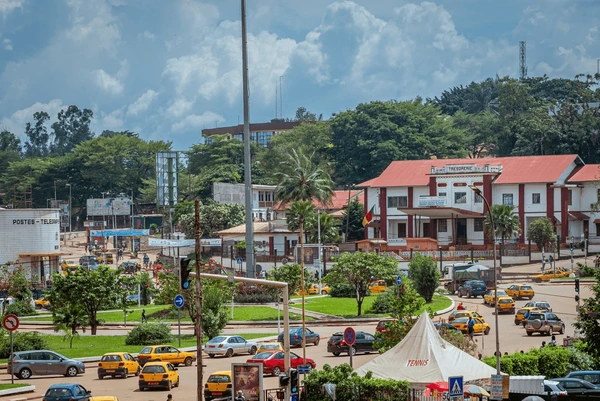Thailand is a country known for its beautiful beaches, diverse culture, and active lifestyle. Indeed, over the years, it has been one of the favorite destinations in the world, both for expats and foreign investors. Be it retiring to paradise, investing in a vacation rental, or simply owning a piece of this tropical haven, you may wonder, “Can a foreigner buy property in Thailand? In this article, we delve into the regulations regarding foreigners owning property, types of properties available, and what challenges you may find yourselves in.
Understanding Property Ownership for Foreigners in Thailand
Yes, a foreigner can invest in Thailand’s property; however, there are some specific regulations and conditions that govern the buying into such transactions. A breakdown of major forms of property ownership available to non-Thai nationals is highlighted below.
1. Condominium Ownership
Foreigners are permitted to own a condominium unit in Thailand, provided that certain requirements are satisfied. According to the Condominium Act of 1979, the proportion of foreigners who own the total area of all units in a condominium building must not exceed 49%. Therefore, when you want to purchase a condo, you must ensure that the foreign quota has not been exceeded.
Benefits:
– Straightforward Ownership: The process is more straightforward than in other property types.
– Lower Cost of Investment: Compared to a stand-alone house, condominiums are perceived as more inexpensive. Thus, for many foreign buyers, it’s quite desirable.
Considerations:
– It’s Limited to the Condominium Units: It doesn’t extend to landed property or to houses.
2. Land Ownership via Leasehold
While direct land ownership is restricted, it is possible for foreigners to take ownership of land through a leasehold agreement. Generally, this involves being allowed to lease the land for a period of 30 years and, in most cases, able to renew the lease a further two times in 30-year terms. Thus, being able to own the land for a total of 90 years.
Benefits:
– Long-term Security: A 90-year lease provides considerable security for those looking to build a home.
– Flexibility: Lease agreements can be tailored to meet the needs of an individual.
Drawbacks:
– No Ownership Rights: Land ultimately remains with Thai ownership, and renewal of leases can sometimes be complex.
3. Thai Company Structure
Foreigners can also buy land in Thailand through the setup of a Thai company. In so doing, the property is held by the company, which may be foreign-owned 100%, but it has to be a registered Thai company, and the majority of its operations have to be conducted in Thailand.
Advantages
– Legal Ownership: This structure allows for full ownership of land and property.
– Business Opportunities: It can also provide opportunities to engage in businesses in Thailand.
Considerations:
– Complex Setup: Setting up a company involves some legal and administrative procedures.
– Ongoing Compliance: Running a company in Thailand is subject to local laws and regulations.
4. Ownership in Conjunction with Thai Nationals
Another avenue available to foreigners is jointly purchasing property with a Thai national. In such cases, the property can either be held jointly or solely in the name of the Thai national.
Benefits:
• Increased Ownership Flexibility: The property ownership can be more flexible than a straightforward purchase.
• Potential Financial Benefits: A Thai partner can bring other perspectives on markets and ways to improve your investment.
Considerations:
• Trust Issues: This invariably means that one is always taking a risk, and clear legal agreements are necessary to avoid any potential disputes.
– Dependency on Partner: Ownership is risky as one’s ownership can be in jeopardy when the relationship with the partner deteriorates.
Understand the Legal Environment
Buying real estate in Thailand requires an understanding of the legal environment and due compliance with the laws of the country. Here are some important steps that need to be followed:
1. Acquiring the Services of a Competent Lawyer: It would thus be advisable to acquire the services of a qualified attorney that specializes in property law. Such a lawyer can enable the individual to get through certain complicated situations and confirm that everything is appropriately documented.
2. Research Due Diligence: Thoroughly study the property. Verify in concrete the ownership, the land title, and any encumbrances. Verify if the property has been lawfully registered, and also check the ownership structure of the building.
3. Draft a Sale and Purchase Agreement: This must stipulate the terms of sale with regard to payment schedules, deposit amount, and contingencies.
4. Transfer Ownership at the Land Office: After an agreement on the sale, transfer of ownership is to be performed from the local Land Office, where you are to submit the required documents along with payment for the fees of transfer.
Financial Considerations
Owning property in Thailand as a foreigner also means being aware of some financial implications. Some of the things that should be known include:
– Taxes: Other than transfer fees, a buyer might need to incur specific business taxes and income tax if he decides to rent out his property.
– Currency Exchange: Be aware of the implication of the current exchange rate of your home country currency.
Financing: Most Thai banks have some sort of restrictions when it comes to providing credit to foreigners. You may need to seek alternative financing options or pay cash outright.
Issues to Be Cognizant Of
The allure of Thai property is massive, but to be successful, these hindrances must be known:
1. Legal Restrictions: Understanding the property laws of Thailand is fundamental. Mistakes can lead to a disputed legal case and even financial loss.
2. Market Fluctuations: The Thai real estate market can be quite volatile. Their fluctuating prices seem to be dependent on various issues such as political stability and the state of the world’s economy.
3. Cultural Differences: It is not always easy to understand the finer points of conducting business between different cultures. It can mean a great deal to maintain good relations with the locals in general.
Owning property in Thailand as a foreigner is possible, but one has to be very careful with planning, legality, and understanding the rules and regulations involved. Various methods of avenues are available in order to acquire property, from condominium ownership, leasehold agreements, and even joint ventures with Thai nationals. Each one of these avenues offers its advantages and disadvantages, so one needs to carefully evaluate one’s situation and goals.
With the time it takes to do your research, engage professional assistance, and understand the legal framework, a successful transaction in the Thai real estate market is quite possible, and a dream of owning property in Thailand can come true. It may be a holiday home, an investment opportunity, or a permanent residence-so let the vibrant culture and beautiful landscapes of Thailand be your haven.










